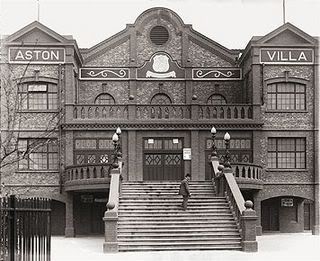Dave Woodhall looks back with little fondness at Villa in 2016-17.
It’s not really exaggerating to say that the season just ended has been the worst in living memory. Off the field we lost three men who each played a significant part in the club’s history, two of them at a tragically early age. There was also the lowest league position since 1974, when Vic Crowe’s side finished fourteenth in what was than a 22-team division two. As with this time round, a season of mid-table mediocrity back then included a brief flirtation with the relegation places and a good run of form that came way too late. At the end of that season Crowe paid with his job, ushering in Ron Saunders and the most successful era of the past hundred years.
I doubt if Steve Bruce will suffer the same fate as his predecessor. For one, he’s probably far more canny in the ways of football management politics than Crowe, a man who in the words of former Villa chairman Sir William Dugdale, “was not a great seller of himself” and who could have made more of the club’s situation in order to protect his job. I also wonder if the mood at Villa Park, from the boardroom down, has the desire for yet another bout of upheaval.
One thing, though, is for certain. Bruce will need to hit the ground running in August; any sign that the club won’t be in the promotion shake-up next season is sure to increase the doubt surrounding the manager’s future. At the moment, though, getting rid of him would be one of those easier said than done tasks. Saying a manager should get the sack isn’t difficult. Finding a replacement isn’t quite so straightforward. For every Arsene Wenger plucked from relative obscurity overseas there’s a myriad who failed, Remi Garde being just one name. Equally, for every David Moyes who came up from the lower divisions to succeeed in the Premier League (at least in his first job) there’s a Paul Lambert or six who found the task too much for them.
Stories this week that Bruce will not be able to enjoy such a spending spree as Villa have undertaken in the past twelve months seem to be based more on FFP regulations than a loss of confidence on the part of Tony Xia and maybe that’s to the good – that need for stability rather than upheaval again. Villa certainly have the individual squad members to perform much better than they did in 2016-17; getting the best out of them will be more important than spending a third fortune in successive transfer windows.
Most of the money spent by Villa last season was, yet again, wasted on under-achievement. Four players with the proven ability to score twenty goals a season led to one of the lowest scoring totals in the division. Another fortune on midfielders resulted in little invention or flair. At the end of the season you could look back and remember hardly more than a handful of memorable moments, let alone games. Too many players failed to show their undoubted talent while few put in the level of commitment that should be expected as a minimum.
The biggest failure of the season can be made from a shortlist that included Jack Grealish, Jordan Amavi and before his departure, Jordan Ayew, all of whom should have been capable of lighting up the Championship but none of whom was capable of holding down a regular place in a mid-table side. But they were all put in the shade by Ross McCormack, another in a long line of players whose successful careers ended the moment they signed for the Villa.
The highlights were Jonathan Kodjia, James Chester and Mile Jedinak, while Neil Taylor proved that you don’t have to spend a fortune on big names provided that their attitude is right. Taylor has nowhere near the natural talent of Amavi, but has proved a reliable addition in a position where Villa have struggled for a long while.
One great irony that passed largely without comment during the season was that Villa’s home form was better than it has been for years. Despite the fear that playing at Villa Park would inspire the opposition, the team were comfortably amongst the top six teams at home. The problem was in away games, where despite the team being backed by the largest and loudest following in the country, their performances were invariably disappointing. If one word could describe 2016-17, ‘disappointing’ will do better than most.
